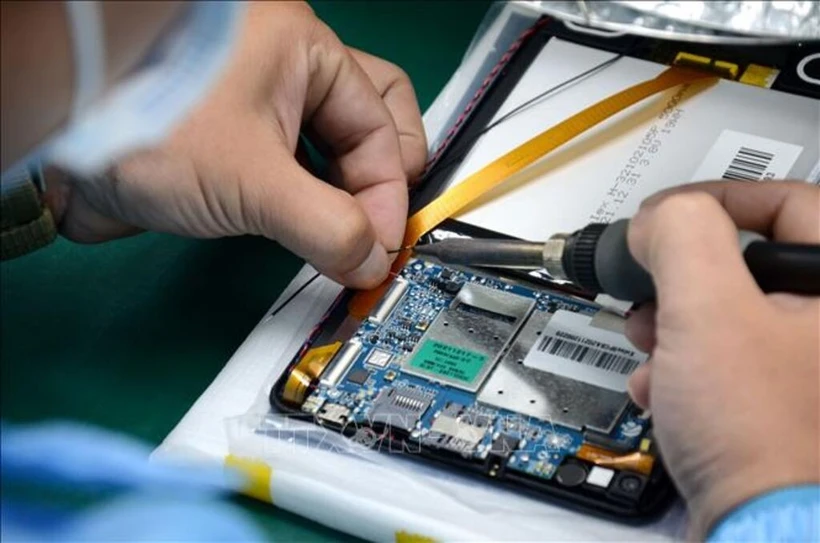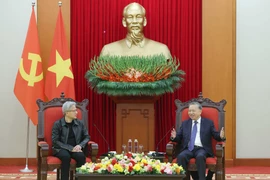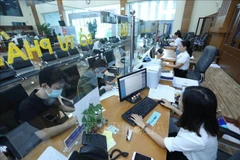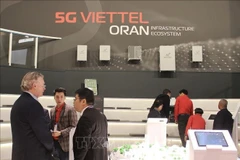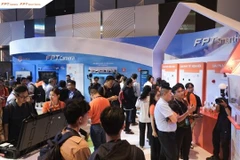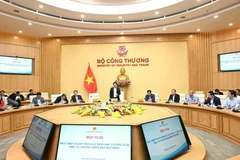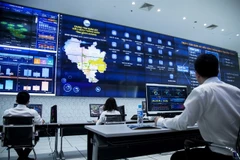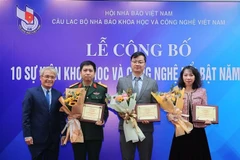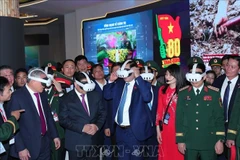Hanoi (VNA) – Minister of Planning and Investment Nguyen Chi Dung, who is also deputy head of the National Steering Committee for Semiconductor Industry Development, emphasised that the committee will continue to settle difficulties and bottlenecks to turn the semiconductor industry into a major driver of Vietnam’s growth in the new era.
Dung said that the Ministry of Planning and Investment (MPI), as the standing agency for the steering committee, has been working closely with other committee members to draft reports and update the Prime Minister on progress in promoting the semiconductor industry.
With global supply chains diversifying and geopolitical uncertainties on the rise, Vietnam has become an increasingly attractive destination for semiconductor industry investments. Key factors driving this include a skilled workforce with competitive costs, substantial infrastructure improvements, a more open policy environment, and strong political support from the government, particularly from the Prime Minister’s direct involvement.
The MPI has held discussions with top global tech firms such as Qualcomm, Google, Meta, LAM Research, Qorvo, and AlChip, and is actively working on plans to shift supply chains to Vietnam, establish research centres, and expand production and business operations in the country, the minister said.
Localities including Ho Chi Minh City, Da Nang, Bac Ninh, Bac Giang, Vinh Phuc, and Binh Duong have also been proactive in creating favourable ecosystems, building human resources, attracting investment, and fostering international partnerships to support the semiconductor industry.
Through these efforts, the ministry has observed strong support from investors who highly appreciated Vietnam’s initiatives in developing the semiconductor industry. Many companies have reaffirmed their commitments to the Vietnamese market, sharing plans to expand their cooperation, investment, and operations in the country in the near future, he said.
He highlighted Vietnam’s drastic actions to foster the industry’s growth, including the issuance of a human resources development programme and a strategy for its growth, partnerships with global tech giants to promote training and collaboration on semiconductor industry talents.
Dung underlined that Vietnam has a unique opportunity to deeply integrate into the semiconductor industry’s global value chain. Success will require the collaboration of ministries, local administrations, businesses, research institutes, universities, and both domestic and international experts, he stressed.
The minister also emphasised the need for Vietnam to engage in swift, strong, and comprehensive collaboration with leading countries and companies in the semiconductor field. This will enable Vietnam to leverage its human resources and position itself as a key player in both Asia and the world in the semiconductor industry, he explained.
Despite a global decline in foreign direct investment (FDI) and increasing competition, Vietnam remains a prime destination for FDI. By the end of November 2024, FDI inflows totalled nearly 31.4 billion USD, with disbursed disbursements reaching approximately 21.7 billion USD, a 7.1% increase from the previous year.
In a game-changing move, the Vietnamese Government and global tech leader NVIDIA have signed an agreement to establish an Artificial Intelligence (AI) Research and Development Centre and an AI Data Centre in Vietnam, turning the country into a leading hub for AI research and development in Asia./.
